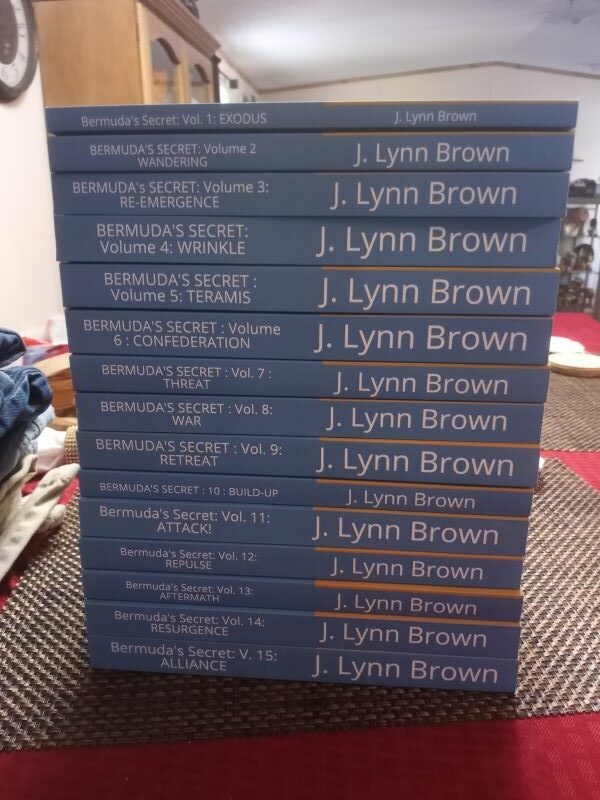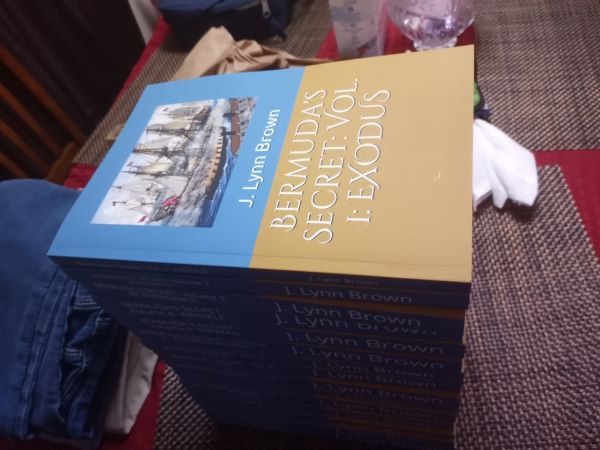These ideas are all around us in abundance! We just need to be creative.
Let’s take a little time in this post to explore just a few of these ideas which could easily be turned into a fantastic literary work.
We will explore a few that I have found by doing a simple Google search. Here goes.
- Adapt a story. If you know a real life story or any sort of fictional story, which might have impacted you, this can be a great source for ideas.
- You can use a nonfiction book as an idea mill for a fictional novel. In fact, this is exactly, in essence, what I have done when I wrote my Bermuda’s Secret series. There are many other ideas that can be derived by this method too.
- A lot of the best book ideas come from stories and folklore from previous generations. I know that many of you have likely come across several adaptations in movies and books from such sources that have had different spins put on them. Be Creative! If anything you might find yourself interested in those that exist that have been done and redone with several artistic licenses and subtle differences and have been successful. That means there is a good chance your version might also be well-received by today’s audiences, as well. We never know until we try!
- Create a character or story based on people that you know. l have done exactly that with the unique characters that I have created in the Bermuda’s Secret series. This is backed up by something that I read too. Paraphrased, I read that “many authors have examined the traits of a best friend, family member, or co-worker and incorporated all or part of what they observed and turned it into a a great book idea, or at the very least a sub-plot therein.”
- Here is the way that I managed to do this exact same thing to come up with many of my characters in my Bermuda’s Secret series.
- I remembered my experiences with many of my step children having been married more than a few times. I even created character names with some creative tweaking of their actual names! I even incorporated many of their mannerisms into the fictional characters that I created.
- Perhaps you have been around people that you know well. I’m sure that you have observed their behavior and response to certain situations. For me, these are engrained in my memory, but for anyone else, you can even take notes about their actions in whatever way that suits you which will allow you to remember when you write about them–either as characters or subjects of your new fiction work. Who knows, once your friend or relative realize what you are working on and further know that it is actually about them in some small way, they could very well end up being a key supporter of your work, especially if they end up being a key character in your work. As the old saying goes, “Imitation is the Sincerest form of Flattery”.
- I remembered my experiences with many of my step children having been married more than a few times. I even created character names with some creative tweaking of their actual names! I even incorporated many of their mannerisms into the fictional characters that I created.
- Here is the way that I managed to do this exact same thing to come up with many of my characters in my Bermuda’s Secret series.
- Is there a moment in your own life that might inspire a non fiction or fiction book idea?
- Many aspiring writers begin their writing projects thinking about events they have experienced in their own lives. I’ve taken a few incidents in my own life and folded them into the plotlines in some of the books of the Bermuda’s Secret series, too.
- The more that you try to do this, the easier it becomes, and if you are a good enough writer, it can also make for a riveting book or series.
- Derive ideas from plots of books or movies that you love.
- I actually wrote the first spiral-bound draft of a book that I called Bermuda’s Secret when I was 10 or 11 years old. I incorporated themes and plots from several books, movies, and TV series, along with my interest of the Bermuda Triangle phenomenon and legend to eventually write–over 25 years later, what ultimately became the Bermuda’s Secret Series.
- There are elements of C.S. Lewis’ Chronicles of Narnia, 1970’s T.V.’s Battlestar Galactica, The American Civil War, my many step-children and even a couple of ex-wives, and the Bermuda Triangle mystique just to mention only a few of my sources or inspirations to put together this series!

- There are elements of C.S. Lewis’ Chronicles of Narnia, 1970’s T.V.’s Battlestar Galactica, The American Civil War, my many step-children and even a couple of ex-wives, and the Bermuda Triangle mystique just to mention only a few of my sources or inspirations to put together this series!
- I actually wrote the first spiral-bound draft of a book that I called Bermuda’s Secret when I was 10 or 11 years old. I incorporated themes and plots from several books, movies, and TV series, along with my interest of the Bermuda Triangle phenomenon and legend to eventually write–over 25 years later, what ultimately became the Bermuda’s Secret Series.
- In incorporating all these elements into my series I had to use my imagination to ask “What if?”
- One of my favorite eras of American History was the American Civil war.
- You can do this too by thinking about a known era from history, and imagine what might have transpired or not transpired if a few key facts were altered. This fiction writing technique is the a central part of a genre known as alternate history fiction. I have always loved reading these types books and watching these sorts of movies which depict the same! Alternate history fiction is a style of fiction writing where the author changes one key element or elements about established history and then develops a partially fictional story that results from this change–this is exactly what I have done with the Bermuda’s Secret series.
- This allowed me to have everything all in one place because of the different time dimensions and other factors.
- Embrace non-mainstream, and perhaps distasteful or not normal storylines.
- You never know what might be well-received by readers. Don’t be afraid to take some risks. Some of the best book ideas may have seemed weird at the outset, but they went on to produce hits that topped bestseller lists. When it comes to your own work, don’t be afraid of what you might come up with, or what people might think. You’re not trying to stifle your creatvity and flow of the book. Never be too critical of your work. While not all writing will produce full books, or, in my case, a full book series, it’s always important to follow inspirational progress and see where your unique storyline takes you as you are writing your book. It is interesting to note that many bestselling books were once dismissed as too risque’ or far-fetched!
- You also do not need to set out writing a “War and Peace”- sized epic.
- For example, a short story plot doesn’t need to carry as much creedence as the plotline of a traditional sized novel. Any idea that you come up with that might be a little too short for your first novel, consider saving it to be a part of another project when the writing muse hits again, or you could even make a short story out of it too. If you can successfully write a short story, the novel writing process will become a lot easier. The more you write, the easier it tends to get with a few exceptions, of course. In my mind, I try to never waste anything that I have written! You never know when it might be useful.

In future posts, we will continue to explore more on the topic we have just touched upon today!
Until next time, KEEP WRITING!
